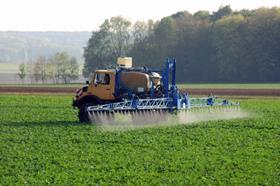
We are hearing increasingly that growers are concerned by the reduction of available chemicals. Are you also getting more reports of this, and what is the focus of people’s concerns?
Adam Speed: The loss of active ingredients has been ongoing for some time. Since 2001 farmers and growers have lost more than half of the active substances approved for use in the EU. And this trend is only likely to continue. Our view is that, at present, while the current EU regulatory regime for crop protection products could be workable, the politicisation of almost every recent decision on crop protection delineates a trajectory that will ultimately lead to EU farmers losing access to most of the crop protection tools currently at their disposal. Ultimately, this will lead to the EU becoming uncompetitive and perhaps unable to provide a steady and reliable supply of safe, affordable food.
At a recent international conference producers from as far afield as South America were complaining that the EU is making MRL decisions based on sentiment rather than science. Would you agree with this assessment and are you concerned about its impact on food production?
AS: Yes and there is potentially a significant issue impacting on the supply of fresh produce imported into the UK from outside of Europe. The consultancy Audax has looked at the potential impact of the loss of some EU Maximum Residue Levels (MRLs) in the next two years. The study estimates that 20-40 per cent of pesticide uses could be lost for some fresh produce. This could mean the continuous availability of certain crops is at risk due to inability to meet EU legislative criteria. These include citrus fruit, peaches, mangoes, table grapes, beans, peas and peppers.
Do you think Britain’s departure from the EU is likely to have any bearing on this issue?
AS: It depends on the deal and how crop protection products are regulated post Brexit. Brexit does provide the UK with an opportunity to become a global leader in crop protection research and development, but to realise this opportunity the UK needs to adopt a science-based approach to policy making. Regulations should foster innovation; and incentivise research and development into new technologies in pest control and crop science, while at the same time protecting human health and the environment.
What’s the CPA’s stance on environmentally friendly farming and how this can be squared with the need to battle rising pest and disease threats?
AS: We advocate an Integrated Pest Management (IPM) approach which considers all available techniques to manage pests, weeds and diseases. This approach helps to minimise the impact on the environment as much as possible. But ultimately, we need to feed a global population set to reach nine billion by 2050. Farmers and growers will need every available technology to meet this challenge and ensure the continued availability of healthy, safe affordable food.






No comments yet